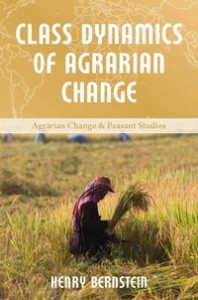Wood, Ellen Meiksins. 2002. The Origin of Capitalism: A Longer View. London: Verso.
Ellen Meiksins Wood critiques accounts about the origin of capitalism—across the political spectrum, including Marxist’s—for overlooking the begging questions about what really drove the emergence of capitalism. She says accounts often present circular arguments in which capitalist dynamics were sort of always-already present and that particular historical conjunctures merely “unfettered” or quantitatively multiplied these extant tendencies and activities. Such accounts, she argues, naturalize capitalism and make it seem like system that is both inevitable and unshakeable. Her account emphasizes not the “opportunities” afforded by markets in the consolidation of markets, which she derides as the commercialization model, but rather the “imperatives” that market dependencies create and extend throughout the capillaries of social life and relations. Continue reading


